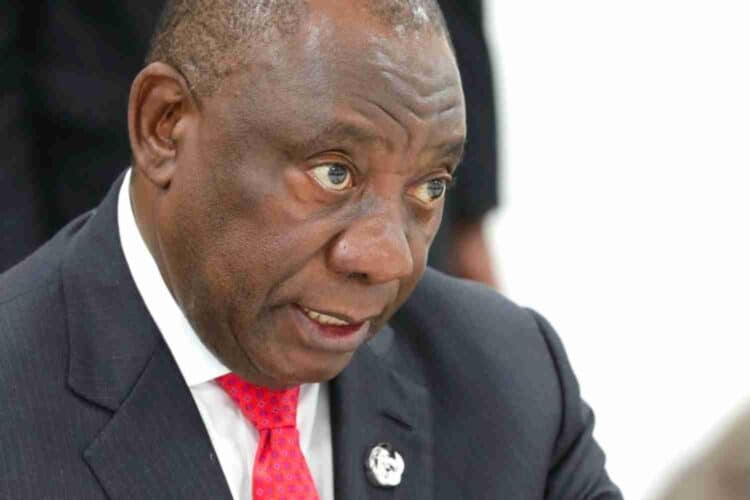The US Federal Bureau of Investigations (FBI) has been roped into a political ploy over the alleged shoddy activities that took place at President Cyril Ramaphosa’s Phala Phala farm, in early 2020.
John Steenhuisen wants Ramaphosa investigated by the FBI
The leader of the Democratic Alliance (DA) sent mouths wagging when, during a press briefing on Tuesday, he announced that he has contacted the US federal law enforcement agency requesting a probe into the origins of the $4 million (est. R64 million) that was stolen from Ramaphosa’s Limpopo farm back in February 2020.
The details around the mystery have, thus far, only come from the complainant, former spy boss Arthur Fraser who sent shockwaves reverberating across the political realm when he filed charges against the president, accusing him of theft, money laundering, unlawful interrogation, and other serious crimes.
The president has yet to issue a direct response to the allegations, and for Steenhuisen, this is highly suspicious and warrants a probe into the source of the money, its intended use, and most importantly, whether Ramaphosa flouted any US and local currency laws in withholding the movement of such a large amount of cash.
“We could have avoided all this pain and nonsense, but that has not happened. Surely, the most innocent thing to do is produce the evidence and your side of the story,” he said.
According to Steenhuisen, the FBI has jurisdiction to investigate the president on the use of the US currency in the infamous burglary.
“Specifically, we have requested that the FBI considers investigating the source of the funds and whether the money was brought into South Africa legitimately and declared to the appropriate authorities,” he added.
Can the FBI investigate the president?
Steenhuisen further tasked the US agency to request access to Ramaphosa’s Phala Phala ledgers and journals, and track the source of the $4 million, which according to the president, was a total of proceeds received from the sale of his animals.
In all the furore that’s surfaced from ‘Phala Phala FarmGate‘, the real question that begs an answer is, can the FBI actually investigate Ramaphosa? The answer lies somewhere in the agency’s mandate on international operations.
Before we dive into the facts around the FBI’s jurisdiction, a number of key probes into Ramaphosa’s conduct are already underway. Firstly, the Public Protector has been asked to investigate if the president violated the Executive Code of Ethics for failing to report the alleged robbery to authorities.
South Africa’s tax agency will also be expected to determine whether the amount was declared by the president and if taxes were paid on the foreign currency received from the proceeds of the sale of animals.
Moreover, and perhaps, more importantly, law enforcement authorities will want to determine Ramaphosa’s culpability in the manner in which the theft was handled, since there are allegations he may have used unscrupulous means to squeeze information out of the suspects.
The FBI, if Steenhuisen gets his way, may be roped into the Phala Phala investigations, but what exactly is the US federal law enforcement agency allowed to do in this case. Here are the facts:
- The FBI’s international operations are limited to its legal attaché program, which is mostly centred around ‘information sharing’
- The principle role of the FBI overseas is “to establish and maintain liaison with principal law enforcement and security services in designated foreign countries”
- Does the FBI have the scope and jurisdiction to conduct full-scale investigations in South Africa? The short answer is, yes and no.
- While the FBI can conduct investigations in foreign countries, it does so at a rather limited capacity, and under the oversight of host governments.
- The FBI in foreign countries cannot conduct intelligence gathering or counterintelligence investigations.
The typical duties of the FBI in foreign countries include:
- coordinating requests for FBI or host country assistance overseas;
- conducting investigations in coordination with the host government;
- sharing investigative leads and information;
- briefing embassy counterparts from other agencies;
- managing country clearances;
- providing situation reports concerning cultural protocol;
- assessing political and security climates; and
- coordinating victim and humanitarian assistance.
It remains to be seen if Steenhuisen’s request for an investigation into Ramaphosa holds any merit, and if it does, fat chances are, the FBI may only step in to provide an auxiliary role to local law enforcement agencies.






